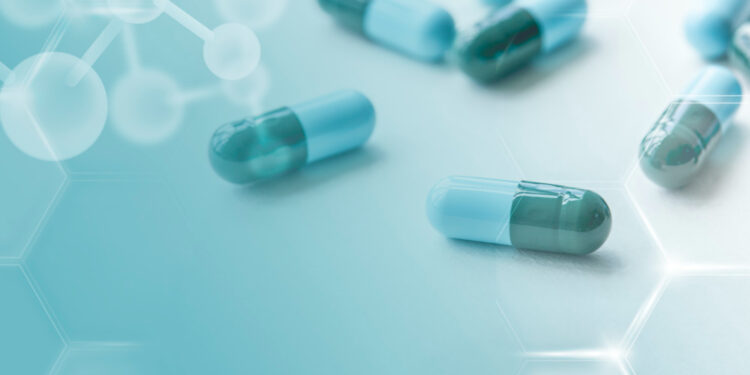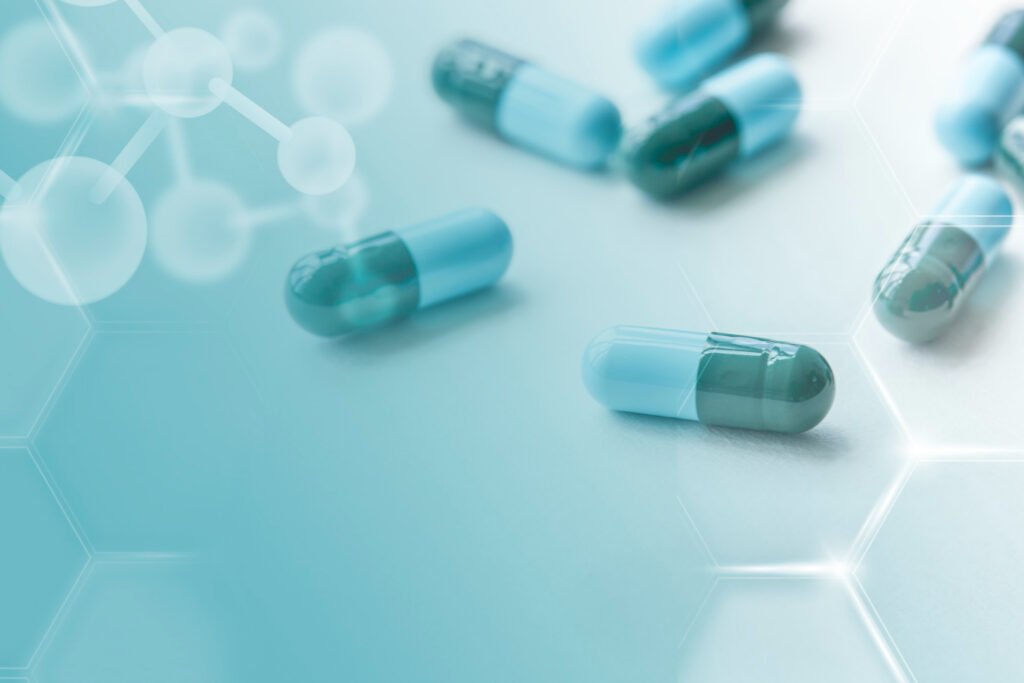The Role of GMP Manufacturing in Advancing Modern Medicine


Table of Contents
- 1 Key Takeaways
- 2 Table of Contents
- 3 Introduction to GMP Manufacturing
- 4 The Foundation of Pharmaceutical Safety
- 5 How GMP Is Paving the Way for Innovations
- 6 Role in mRNA Therapeutics
- 7 Maintaining Quality Standards
- 8 Challenges in GMP Manufacturing
- 9 Looking Ahead: The Future of GMP
- 10 Why GMP Matters to You
Key Takeaways
- GMP manufacturing ensures the production of high-quality pharmaceuticals and biotechnological products.
- It plays a crucial role in the development and distribution of mRNA therapeutics.
- Understanding the basics of GMP standards can offer insights into safe and effective drug development.
Table of Contents
- Introduction to GMP Manufacturing
- The Foundation of Pharmaceutical Safety
- How GMP Is Paving the Way for Innovations
- Role in mRNA Therapeutics
- Maintaining Quality Standards
- Challenges in GMP Manufacturing
- Looking Ahead: The Future of GMP
- Why GMP Matters to You
Introduction to GMP Manufacturing
This robust framework, rooted in regulatory mandates, focuses on maintaining rigorous standards at each manufacturing stage, from acquiring raw materials to final product distribution. The primary goal of GMP—Good Manufacturing Practice—is to minimize risks associated with pharmaceutical production, essential for safeguarding consumer health and fostering trust in medical interventions.
At its core, GMP is about establishing a system that mitigates the inherent risks in pharmaceutical production. By adhering to stringent standards, companies satisfy regulatory bodies and instill a sense of safety and efficacy in their products among consumers. The comprehensive approach of GMP ensures product consistency, enabling manufacturers to deliver safe and effective medicines consistently. It reflects an industry’s commitment to consumer safety and the efficacy of medical solutions, which is vital for maintaining high standards in healthcare.
The Foundation of Pharmaceutical Safety
Good Manufacturing Practice forms the bedrock of pharmaceutical safety by encompassing all facets of drug production. These comprehensive guidelines are designed to ensure that medicines are produced in a clean environment and have the quality they claim to have every single time. It covers sourcing high-quality raw materials, maintaining proper documentation for traceability, and implementing thorough testing protocols to ensure safety and effectiveness. In the ever-evolving pharmaceutical realm, GMP manufacturing ensures product quality and safety.
Within GMP frameworks, detailed records are kept at every production stage, allowing for seamless traceability. This means any deviations or issues can be swiftly addressed and corrected, a process that ensures compliance and continually enhances quality. Adhering to these standards minimizes potential contamination risks and assures consumers that their medicines are safe and efficacious. This rigorous process, mandated by global health authorities, necessitates that each pharmaceutical entity maintain a high standard to produce safe and effective medicines, reinforcing consumers’ trust in available therapies.
How GMP Is Paving the Way for Innovations
In today’s era of rapid scientific advancement, the ability to innovate safely is paramount. The breakthroughs we see today in pharmaceuticals and biotechnology owe much to the rigorous protocols of GMP. By ensuring that all new developments meet safety and efficacy standards, GMP provides a structured framework that encourages innovation. This framework allows for accuracy and precision, especially when exploring novel therapeutic frontiers such as gene therapy and personalized medicine.
GMP requirements encourage companies to stay at the forefront of technological advancements while maintaining a commitment to product integrity. This dual focus on quality and innovation prevents stagnation within the industry, promoting continuous improvement and fostering adaptation to emerging challenges. This structure is particularly crucial when exploring new therapeutic avenues, such as personalized medicine, where precision and control are paramount. Compliance with GMP inspires confidence among stakeholders and ensures that innovations reach the market efficiently and safely.
Role in mRNA Therapeutics
mRNA technology, a game-changer in the healthcare industry, magnifies the importance of adhering to GMP practices. The recent global health crisis underscored the critical role of rigorously structured manufacturing protocols, leading to the rapid development and distribution of mRNA vaccines. GMP’s role in this process was pivotal, ensuring that these vaccines were produced with the highest quality standards and ready for mass distribution on a global scale.
According to the National Institutes of Health, mRNA vaccine development was streamlined through GMP, ultimately contributing to the agility with which production processes could pivot to meet urgent needs. mRNA therapeutics leverage the efficiencies embedded within GMP frameworks, making this innovative field even more promising. As mRNA technology evolves, its potential to combat various health conditions hinges on compliance with GMP standards that ensure each development stage prioritizes safety and efficacy.
Maintaining Quality Standards
Pursuing quality in pharmaceuticals doesn’t end with meeting GMP standards; it begins there. Companies aiming for excellence often set internal benchmarks that supersede regulatory requirements. This proactive stance ensures that products undergo rigorous quality assessments, go beyond compliance, and achieve higher levels of safety and reliability. Continuous training and thorough audits are implemented to engrain a culture of constant improvement within the manufacturing environment.
This commitment to excellence means that personnel involved in production receive ongoing training to stay current with advancements in processes and technologies. Regular audits are conducted to identify potential areas for improvement, further ensuring that the products not only meet existing standards but redefine them, fostering exceptional quality and consistency across the board in the pharmaceutical industry.
Challenges in GMP Manufacturing
Despite its foundational importance, GMP manufacturing is not without its challenges. High operational costs and stringent regulatory compliance demands add complexity and expenses to production processes. Maintaining such standards requires significant investments in infrastructure and personnel training—resources smaller companies might struggle to afford.
Additionally, the ever-changing technology landscape presents an ongoing challenge in terms of integration and compliance. Manufacturers must consistently upgrade their facilities and processes to align with technological advancements, requiring foresight and flexibility. Addressing these challenges is key to maintaining the integrity of the pharmaceutical supply chain, as technological advancements demand swift adaptation to ensure that quality and safety continue to meet heightened standards.
Looking Ahead: The Future of GMP
The future of GMP manufacturing is poised for transformation with the rise of digital technologies such as automation and artificial intelligence. These innovations promise to enhance compliance measures, reduce the potential for human error, and streamline the production processes. As these technologies are woven into the fabric of GMP practices, we anticipate greater efficiency and consistency in the manufacturing of pharmaceuticals.
Automation brings precision to repetitive tasks, allowing human resources to focus on innovation rather than routine production. AI can predict and identify potential issues before they become critical, providing an additional layer of safety and efficiency in manufacturing processes. This evolution augments production capabilities and solidifies GMP’s role as a gatekeeper of pharmaceutical integrity, ensuring the continued delivery of safe and effective medical solutions in the years to come.
Why GMP Matters to You
For end-consumers, GMP offers peace of mind. Whether a life-saving drug or a daily supplement, GMP assures that the product was manufactured with the utmost commitment to safety, quality, and efficacy. Understanding the pivotal role of GMP allows consumers to appreciate the rigorous standards that protect them, reinforcing informed choices in their health management.
The transparency and accountability ensured by GMP standards mean that consumers can trust the medicines they rely on, knowing that extensive measures have been taken to guarantee their safety. This commitment to consumer protection underlies the importance of GMP in everyday health decisions and showcases the industry’s dedication to maintaining high public health safety standards.

